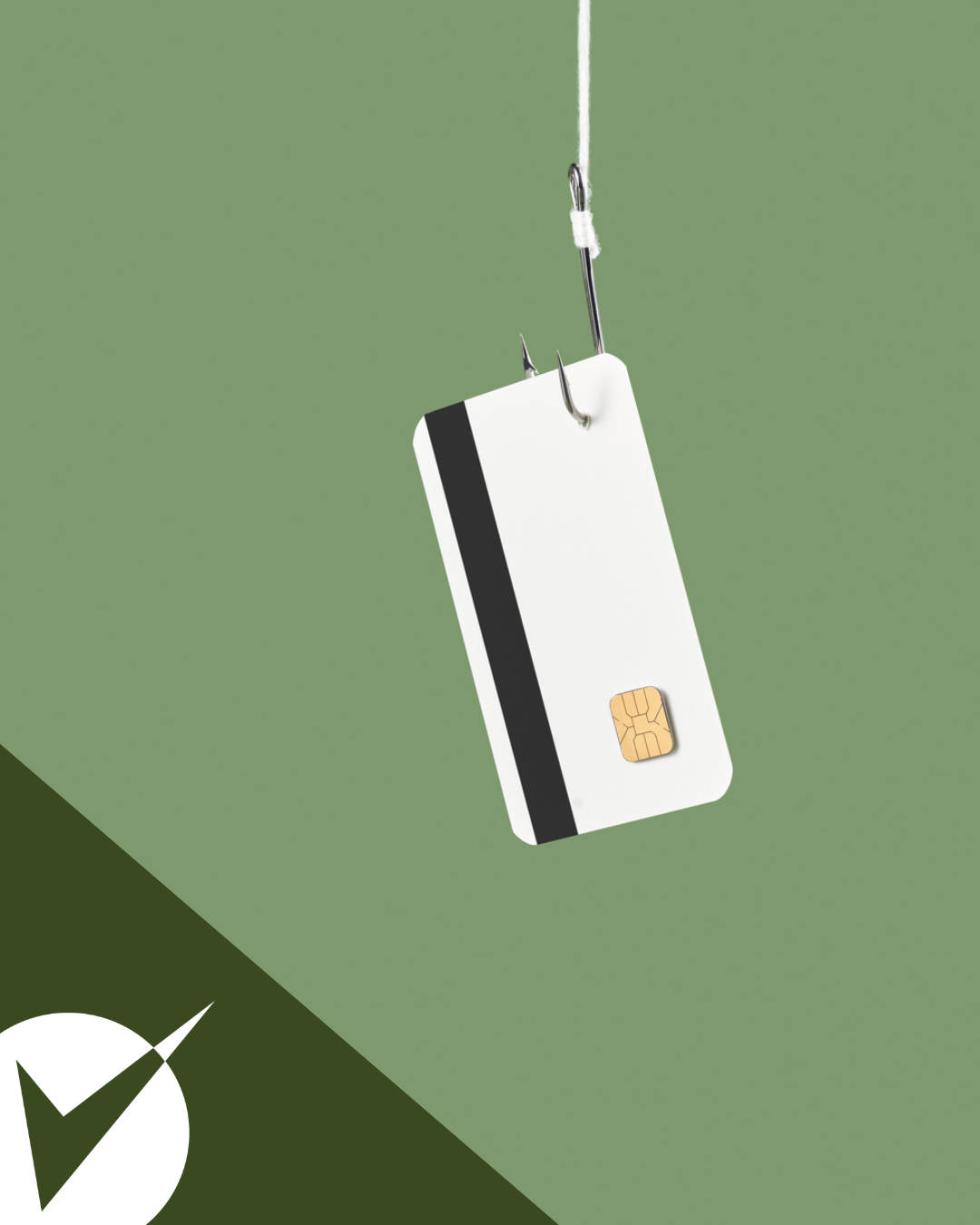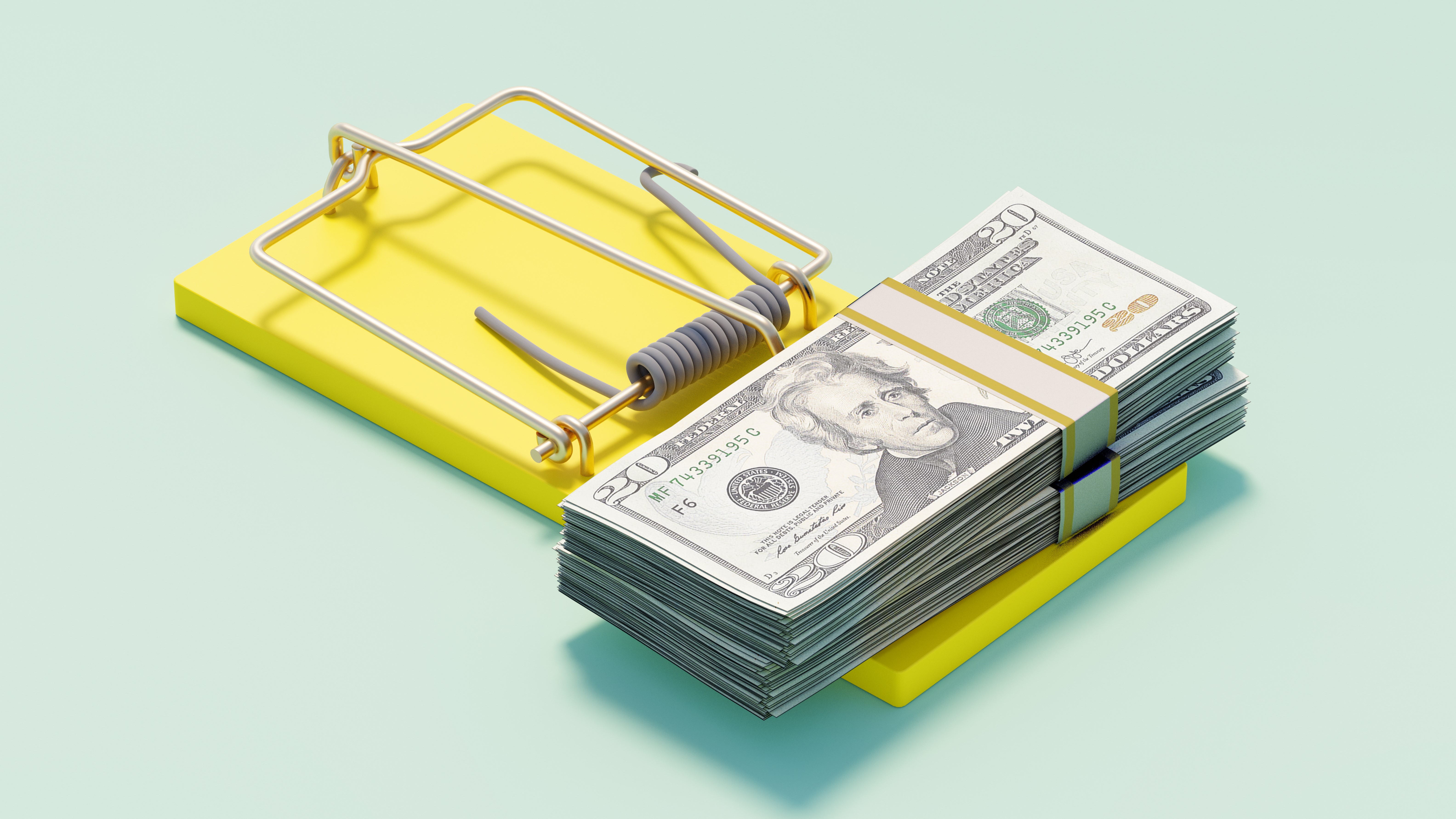Financial Wellness Stories
-

Tips to Avoid Scams and How to Keep Your Credit Safe
These days, it can feel like you see a story about a new scam, hack, or data breach every time you watch the news. But don’t panic! There are steps you can take to protect your info, reduce your risk, and take control. This blog covers some of the best ways to stay safe—and what to do if you think your information might already be out there. Read More about Tips to Avoid Scams and How to Keep Your Credit Safe10 min about Tips to Avoid Scams and How to Keep Your Credit Safe -

Summer Fun Without the Stress
The kids are winding down at school, the weather is getting warmer, and everything outside is getting green; summer has arrived! Whether you’re juggling multiple activities, kicking back in the yard, or heading on vacation we’ve got fun ideas and tips for enjoying summer while keeping financial stress at bay. Read More about Summer Fun Without the Stress7 min about Summer Fun Without the Stress -

Tips for Getting Through Uncertain Times
Financial headlines have your head spinning and worrying about your wallet? You’re not alone! We’ve got some tips on how to safely weather the economic uncertainty! Read More about Tips for Getting Through Uncertain Times12 min about Tips for Getting Through Uncertain Times -

Tips for Teaching Kids About Money
Wondering how to get your kids started with good money habits? Read this blog for some tips on building financial wellness from the ground up! Read More about Tips for Teaching Kids About Money10 min about Tips for Teaching Kids About Money -

Feeling overwhelmed by credit card debt? You’re not alone!
With high costs, rising interest rates, and multiple financial responsibilities, it’s easy to have credit card debt creep up on you. If you’re feeling buried by debt and are unsure how or when you’ll get it paid down, this blog is for you. We’ll talk about some tried and true techniques to dig out of credit card debt, go over some common pitfalls, and give you some suggestions on how to get your head above water – and keep it there. Read More about Feeling overwhelmed by credit card debt? You’re not alone!15 min about Feeling overwhelmed by credit card debt? You’re not alone! -

Tips for Winter Fun on a Budget
Looking for ways to spend quality time with loved ones this February? Whether it’s friends, family, a partner - or even yourself, we’ve got fun ideas for quality time on a budget! Read More about Tips for Winter Fun on a Budget12 min about Tips for Winter Fun on a Budget -

Ways to Reduce Your Spending in 2025
If you’re looking to cut your spending in the new year, we’ve got tips on some tried and true ways to keep more money in your account! Read More about Ways to Reduce Your Spending in 202510 min about Ways to Reduce Your Spending in 2025 -

How to Make the Most of the Holiday Season
This time of year can be a lot of fun, but it can also be very busy and overwhelming. This blog will detail some ways to make the most of the holiday season while also enjoying yourself and preparing for the new year. Read More about How to Make the Most of the Holiday Season7 min about How to Make the Most of the Holiday Season -

Scams to Watch Out for This Holiday Season
Unfortunately, scams around the holiday season are very common. TruChoice is here to provide information and tips on how to avoid common scams. Read More about Scams to Watch Out for This Holiday Season10 min about Scams to Watch Out for This Holiday Season -

Options When Facing Financial Difficulties
When facing financial difficulties, it is important to explore all available options to alleviate the burden of making payments. By reaching out to creditors, seeking assistance from financial professionals, and exploring all available options, it is possible to overcome financial difficulties and regain control of your finances. Read More about Options When Facing Financial Difficulties5 min about Options When Facing Financial Difficulties -

Managing Finances in College
Going to college is an exciting adventure, but it can also come with a lot of financial challenges. Managing your money well is key to making the most of your college experience. TruChoice is here to be your financial partner and help you along the way! Read More about Managing Finances in College8 min about Managing Finances in College -

Building Better Financial Habits
Understanding key concepts such as savings, loans, managing debt, and financial planning can make a big difference in reaching your financial goals and becoming self-sufficient. This blog will explain important concepts and provide helpful tips to help build good habits! Read More about Building Better Financial Habits8 min about Building Better Financial Habits -

Budget and family-friendly summer activities in Maine!
Read our June blog for affordable family-friendly summer activities in Maine! Read More about Budget and family-friendly summer activities in Maine!5 min about Budget and family-friendly summer activities in Maine! -

Financial wellness & fraud tips for summer!
In May's blog, we outline some practical financial wellness tips for summer as well as some fraud red flags to look out for. Read More about Financial wellness & fraud tips for summer!3 min about Financial wellness & fraud tips for summer! -

Benefits of Credit Unions over Big Banks
If you do not work in the financial world, it can be overwhelming to try and understand the differences between a credit union and a bank. In this blog, we aim to help demystify these differences and highlight the advantages of using a credit union over a big bank. Read More about Benefits of Credit Unions over Big Banks3 min about Benefits of Credit Unions over Big Banks -

The Homebuying Journey
TruChoice is here for all your homebuying needs! This blog covers the many steps that make up a typical homebuying process, along with tips to help ease the process. Read More about The Homebuying Journey10 min about The Homebuying Journey -

Winter & Valentine’s Fun on a Budget
Read our February blog for some tips, links, and ideas about low to no-cost winter fun. We also discuss some fun and affordable Valentine’s Day ideas and activities! Read More about Winter & Valentine’s Fun on a Budget5 min about Winter & Valentine’s Fun on a Budget -

New Year, New Budget
The new year is a great time to check in with your budget and financial goals. Not sure where to start? TruChoice is here to help! Read this blog to learn more about how to establish a budget and stay on top of your finances. Read More about New Year, New Budget5 min about New Year, New Budget -

Online Shopping Dos and Don'ts
This time of year, we’re all doing more online shopping - which means that scams targeting shoppers are even more common. We’ll detail the red flags you should look out for when shopping online as well as some best practices that can make your online world more secure. Read More about Online Shopping Dos and Don'ts5 min about Online Shopping Dos and Don'ts -

The Link Between Gratitude and Financial Health
TruChoice has tips for how gratitude can help you increase financial well-being, reduce wasteful buying, and be more intentional with your spending. Read More about The Link Between Gratitude and Financial Health3 min about The Link Between Gratitude and Financial Health -

Managing Different Types of Debt
Dealing with any kind of debt, let alone multiple types of debt, can be stressful. TruChoice is here to answer your questions and provide guidance on how to handle these payments and manage a budget. Read More about Managing Different Types of Debt5 min about Managing Different Types of Debt -

Dispelling Top Credit Myths
Understanding credit scores can be like cracking the code to Houdini or Copperfield’s magic tricks when it comes to your finances. Yet, it comes down to some small, simple steps that TruChoice FCU will reveal! Read More about Dispelling Top Credit Myths5 min about Dispelling Top Credit Myths -

Raising Financially Savvy Adults
Parent-friendly tips will make learning about finances enjoyable for both you and your kids at every age! It's never too early or too late to start teaching them about money. The key is to keep it engaging, practical and adapt the lessons as they grow. Read More about Raising Financially Savvy Adults5 min about Raising Financially Savvy Adults -

Summer fun doesn't have to break the bank
Summer in Maine is full of fun, low/no-cost activities, and endless adventures to create lasting memories. From exploring local parks and nature hikes to enjoying a picnic with friends or family, there is no shortage of ways to enjoy the season without breaking the bank. Read More about Summer fun doesn't have to break the bank10 min about Summer fun doesn't have to break the bank -

Common Online Scams & How to Avoid Them
Protect yourself from Fraudsters! Read about three common online scams that TruChoice FCU is hearing about from our members and learn how to avoid falling prey to scammers. Read More about Common Online Scams & How to Avoid Them7 min about Common Online Scams & How to Avoid Them -

Best way to save more bank? Spend less!
Here’s some quick tips on shaving your spend. Read More about Best way to save more bank? Spend less!7 min about Best way to save more bank? Spend less! -

Spring Cleaning Your Finances
Spring is almost here, and while you may be thinking about cleaning out your closets and decluttering your home, it's also a great time to take a look at your finances. Read More about Spring Cleaning Your Finances5 min about Spring Cleaning Your Finances -

Build Your Savings
Check out our tips to help build your savings and accomplish your financial goals! Read More about Build Your Savings7 min about Build Your Savings -

Winter Activities in Maine
Wondering what to do during the long Maine winter? This blog has you covered! Read More about Winter Activities in Maine5 min about Winter Activities in Maine -

Benefits of Debit and Credit Cards
The holiday shopping season is in full swing. Here are some benefits to using your debit or credit card instead of cash! Read More about Benefits of Debit and Credit Cards3 min about Benefits of Debit and Credit Cards -

Avoid Online Scams While Shopping for the Holidays
Online marketplaces have become more popular in recent years. Avoid these common scams, and learn about local shopping alternatives. Read More about Avoid Online Scams While Shopping for the Holidays5 min about Avoid Online Scams While Shopping for the Holidays -

Understanding Home Equity Loans
Thinking of taking out a Home Equity but don’t know where to start? We’re here to answer your FAQs! Read More about Understanding Home Equity Loans9 min about Understanding Home Equity Loans -

Understanding Credit
If you’re new to credit or looking to rebuild your score, it can be tough to understand what all the terms mean and how to decide what’s the best fit for your situation. Read More about Understanding Credit8 min about Understanding Credit -

Tips for Building and Maintaining Good Credit
Credit Scores can be overwhelming to think about. These tips can help get you started to understanding and gaining control of your score! Read More about Tips for Building and Maintaining Good Credit5 min about Tips for Building and Maintaining Good Credit





